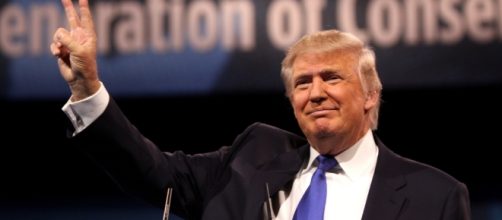US President Donald Trump's controversial executive order banning the entry of people from six Muslim-majority countries had been struck down by the courts. However, the Supreme Court restored parts of the executive order and yesterday the Trump administration announced the new stipulations for anyone applying for a visa to the US from those 6 nations. The new guidelines go into effect tonight.
Trump administration's triumph?
After the original version of the executive order had been struck down by the courts for being unconstitutional, the latest developments could definitely be seen as a triumph for the Trump administration.
However, it is important to note that the new visa rules mirror only parts of the original order. Citizens from six Muslim-majority countries, namely, Yemen, Iran, Sudan, Libya, Somalia, and Syria will be subjected to the new visa rules. Those who have already been granted visas will not have to apply for new visas.
According to these rules, any citizen from among those six countries will need to furnish proof that a close relative is already a resident of the United States and only then will that person be eligible for a visa. If the person has a son, daughter, child, parent, son-in-law daughter-in-law, brother, or sister residing in the United States then he or she will be eligible. The guidelines, however, do not recognize grandparents, uncles, fiancee, nephews and other members of the extended family.
The rules will also be applicable to refugees but apparently, there are certain exceptions to the rule for them.
The exceptions
As is the case with any new guideline pertaining to visa applications, there are certain exceptions that cover a broad group of individuals. For instance, entrepreneurs and professionals will be exempt but they will need to provide supporting documents regarding their business interests. However, the application will not be considered if there is a possibility that those applications are merely a tactic to circumvent the new rules.
The State Department stated that business or professional relationships should be "formal, documented and formed in the ordinary course rather than for the purpose of evading".
In addition to that, students who want to study in the United States, journalists, professionals, and lecturers will also enjoy the exemption. The previous executive order had caused a lot of controversies and there is every chance that any misstep on the part of the United States in regards to this policy will be met with criticism.


